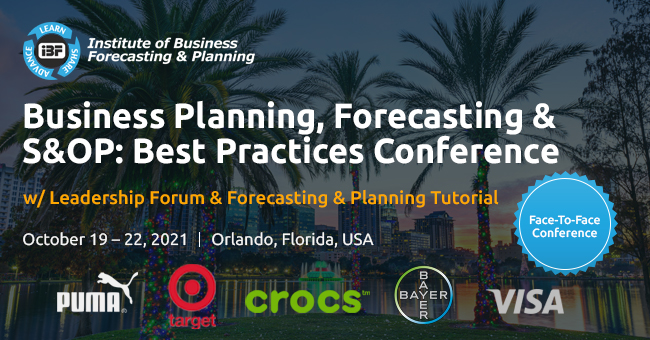“Every time you have to speak, you are auditioning for leadership.” James C. Humes
Demand Planners are commonly characterized as analytical and data minded individuals, which is a fair statement and true for the majority. In recent years, I have noticed that talented and influential Demand Planners all excel in the industry specific skills required for the role, however what makes a few exceptional is their ability to positively collaborate with peers, and to generously share their knowledge to help others succeed.
I have gathered six skills that you may not find in demand planning textbooks. These are a healthy blend of soft skills which, combined with your current skill set, will certainly cultivate a mindset of team culture, personal growth, and productivity.
1. Creativity
There is an artistic component to demand planning that is often ignored. An abundance of creativity exists in problem solving, which inspires innovation and diversity of thought when attempting to discover unique solutions to common problems. Creativity exists in team situations when contributing new concepts in an S&OP meeting, or in process improvement.
Consider adding some of your unique personality to data visualizations or explore creative possibilities when using your pattern recognition and probabilistic skills to improve current methodologies. If you are looking to generate passion in your day to day, get creative.
2. Listening
If you aim to build a solid relationship with key stakeholders that you interact with, then becoming an active listener will get you there sooner. Allowing others to speak while genuinely taking an interest in what they have to say, will demonstrate your interest and concern for the topic being discussed. This will also provide you with an opportunity to understand the overall concerns or issue, so you can offer intelligent feedback.
Active listening will accelerate your learning and is an essential skill that will help you to better understand the needs of your organization and co-workers.
“Being able to articulate a complex issue in calm, simple, and clear terms is a superpower”
3. Communication
Clear verbal and written communication will often help you present and sell your newfound ideas with greater success. What you say and how you say it matters. This could be the tone of your voice, posture or hand gestures. Being able to articulate a complex issue in calm, simple, and clear terms is a superpower. There is no need to use technical jargon where a simple explanation will be enough
. Concise and punchy data points combined with some storytelling are always preferable if you are looking to hold the attention of your audience when presenting and speaking. You need to be able to communicate well and convey strong, persuasive ideas to achieve the goal of connecting with others.
“Empathy is morale improving and a recognized leadership skill in today’s workplace”
4. Empathy
Showing reasonable concern to colleagues during instances of difficulty is an important part of how we interact with each other. It temporarily takes you out of your own perspective and places you in the position of the other person which allows you see a situation differently and often with less judgement.
Empathy is morale improving and a recognized leadership skill in today’s workplace. It shows your colleagues that you are committed to assisting them to reach their objectives by openly communicating workplace concerns to reduce tension and stress in the workplace. This generally leads to win-win outcomes, increased productivity and a more pleasant work culture.
5. Mentoring
Whether you are patiently explaining forecast methodology to key stakeholders or giving career advice to a colleague, mentoring initiatives elevate both mentee and mentor through this transfer of knowledge and shorten the learning curve of the person you are coaching. Effective use of this skill leads to higher levels of team engagement, trust, and innovation within the organization.
Sharing your expertise with others can offer useful feedback for your own ideas and help you develop leadership and management skills. A mentor empowers the mentee, helping them to achieve their future goals through their generosity, patience, and desire to develop others.
“You do not have to be a manager to lead within your organization”
6. Leadership
You do not have to be a manager to lead within your organization. Learning and practicing all the above skills make an effective leader in today’s workplace. Demand Planners have a central role to play within an organization, bridging Finance, Sales, Marketing, and Supply Chain, so good leadership skills are required to bring people together under a common objective.
Genuine leaders give credit to the rest of the team when things are going great. They are focused, have a clear direction, and understand how each of his or her actions will affect the rest of the team. They make tough decisions with confidence under pressure and are willing to be accountable for shortcomings.
These skills will not only help you to become a successful Demand Planner, but they will certainly influence the environment and culture you work in by building trust and cultivating a natural inclination in people to move towards something better.
For more insight into forecasting and planning best practices, join us at IBF’s Business Forecasting, Planning & S&OP Conference in Orlando, held from October 19-22 at the Wyndham Orlando Resort. The biggest and best event of it’s kind, it’s your opportunity to learn best practices in S&OP, demand planning and forecasting, and network and socialize in a fantastic setting. See here for details.


